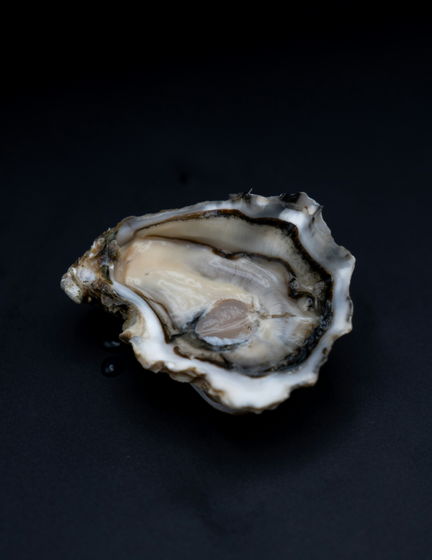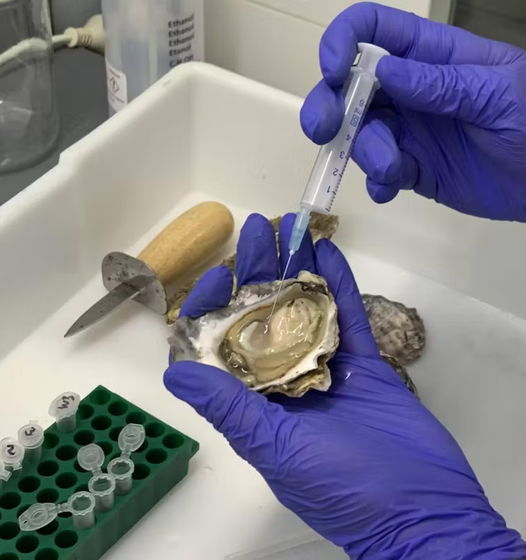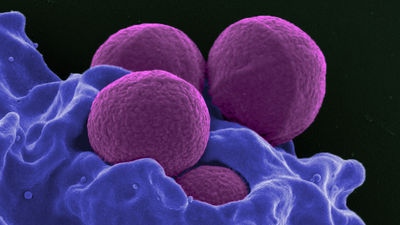'Oyster blood' is expected to be an effective solution to antibiotic-resistant bacteria and superbugs

Oyster 'blood' holds promise for combating drug-resistant superbugs: new research
https://theconversation.com/oyster-blood-holds-promise-for-combating-drug-resistant-superbugs-new-research-226823

Pneumonia, an acute infectious disease caused mainly by Streptococcus pneumoniae, is the most common cause of death in infants under the age of five, and there are also many reports of elderly people being hospitalized with pneumonia. Upper respiratory tract infections such as tonsillitis are known to be the most common infections for which antibiotics are prescribed in children. In addition, skin and throat infections caused by Streptococcus pyogenes can lead to the development of acute rheumatic fever and rheumatic heart disease.
Antibiotics are used to treat these bacterial infections, but their overuse is leading to the evolution of drug-resistant superbugs, which makes it difficult to treat infections with antibiotics, creating a vicious cycle, The Conversation pointed out.
To further complicate the issue, bacteria and other microorganisms form biofilms, which are colonies of millions of bacteria embedded in a self-secreting substance that adheres to surfaces and protects them from the host's immune system and antibiotics. Because biofilms are involved in almost all bacterial infections, the treatment of infections with antibiotics that can inhibit, destroy or penetrate biofilms is considered to be of great value.

At the time of writing, more than 90% of antibiotics in use are naturally derived, and more than 65% of antibiotics in development are also naturally derived. When creating a new antibiotic, researchers start by studying organisms that produce antibacterial chemicals for self-defense.
Oysters have a strong immune system due to their exposure to a high concentration of diverse microorganisms in the marine environment. Over the past few decades, research has revealed that oyster
In fact, oysters have a long history of being used as medicine to treat infectious diseases, and medicines made from oysters have been recommended in China to treat respiratory infections and inflammatory diseases. In addition, Australian aboriginals have a history of eating oysters as a health food for thousands of years.

The study was led by Southern Cross University malacologist Kate Sommer and Professor Kirsten Benckendorff of the National Centre for Marine Science and Technology. Their research analysed antibacterial proteins in the haemolymph of Sydney rock oysters, found off the coast of Sydney, Australia, and demonstrated that they are effective at killing Streptococcus bacteria.
The antibacterial protein is effective at inhibiting the formation of streptococcal biofilms and can also penetrate already formed biofilms.

In recent years, an increasing number of drugs have been combined with antibacterial peptides and antibacterial proteins to enhance the effectiveness of existing drugs. Antibacterial peptides and antibacterial proteins destroy the cell membrane of bacteria, making it easier for antibiotics to reach their targets. In addition, most antibacterial peptides and antibacterial proteins also have the effect of 'strengthening the host's immune system and enhancing the therapeutic effect.'
The research team tested the activity of antibacterial proteins extracted from the hemolymph of Sydney rock oysters against various bacteria by combining them with various existing antibiotics. It was revealed that even at very low concentrations, the effectiveness of the antibiotics was improved by 2 to 32 times. In particular, it has been revealed that the antibacterial proteins derived from oysters are effective against streptococci, Staphylococcus aureus, and Pseudomonas aeruginosa, and are not toxic to healthy human cells.
In the future, the research team plans to combine the oyster-derived antibacterial protein with conventional antibiotics and conduct animal and clinical trials.
Related Posts:
in Science, Posted by logu_ii







